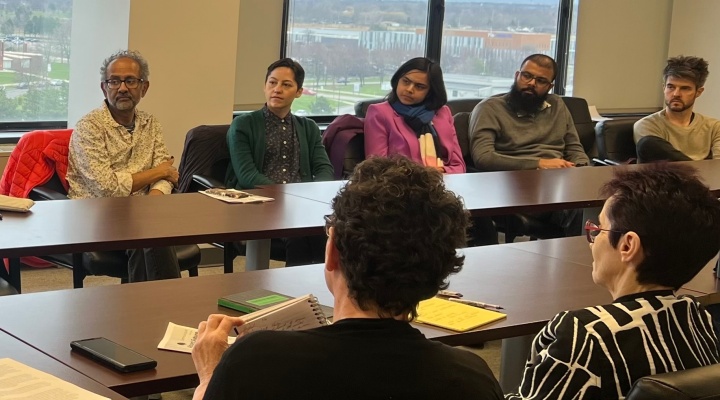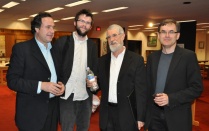
Apply to the Program
Meet Our Students
Meet Our Faculty
Support the Department
The Department of Comparative Literature at the University at Buffalo is a relatively small, yet independent program. It combines a tradition of scholarly rigor with openness to fresh currents in literary studies. While rooted in an intense ongoing inquiry into the nature of literature, its conceptual and philosophical underpinnings, and its critical methods, the department sustains a wide range of interdisciplinary approaches and projects. In the past, students have incorporated into their work concerns and methods deriving from philosophy, psychoanalysis, legal studies, political theory, and anthropology.
Featured Events
Department Statement on Diversity
The Department of Comparative Literature is committed to the study of cultural and linguistic diversity and cherishes the diversity of students and faculty. We support members of our community across differences of race and ethnicity, religion, politics, ability and disability, gender, sexuality, and immigration status. Respect for those differences is an essential and shared intellectual value.
We affirm our commitment to protecting the most vulnerable, to the imaginative work of understanding one another, and to the power of languages as a force for social justice and a vehicle of bridging differences.
Haudenosaunee Land Acknowledgement Statement:
We would like to acknowledge the land on which the University at Buffalo operates, which is the territory of the Seneca Nation, a member of the Haudenosaunee/Six Nations Confederacy. This territory is covered by The Dish with One Spoon Treaty of Peace and Friendship, a pledge to peaceably share and care for the resources around the Great Lakes. It is also covered by the 1794 Treaty of Canandaigua, between the United States Government and the Six Nations Confederacy, which further affirmed Haudenosaunee land rights and sovereignty in the State of New York. Today, this region is still the home to the Haudenosaunee people, and we are grateful for the opportunity to live, work, and share ideas in this territory.












